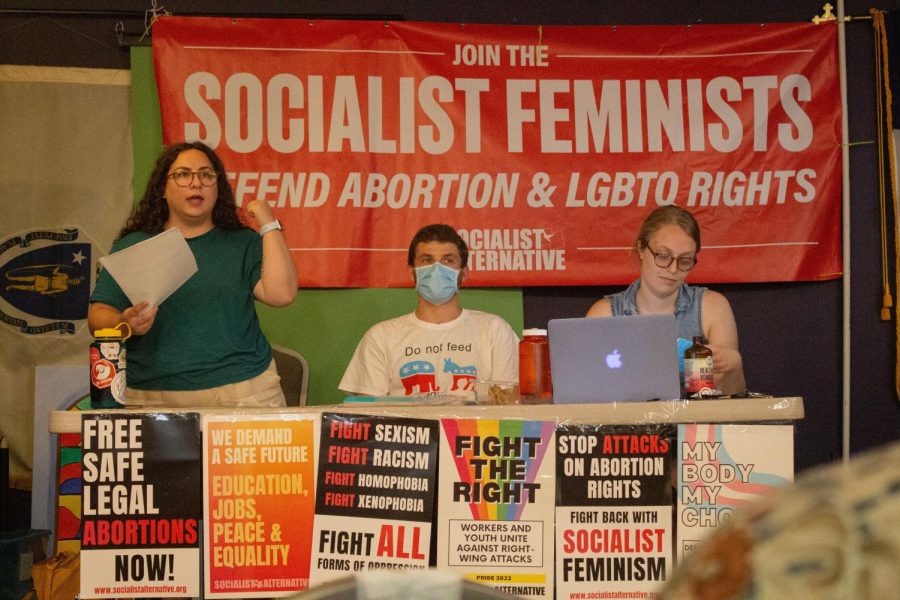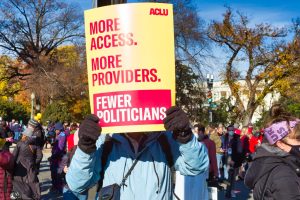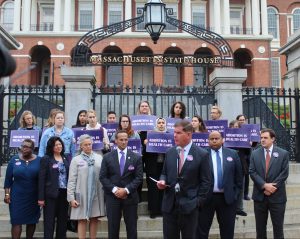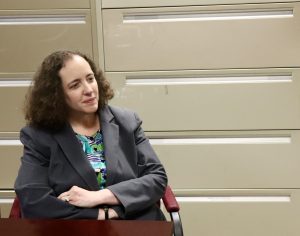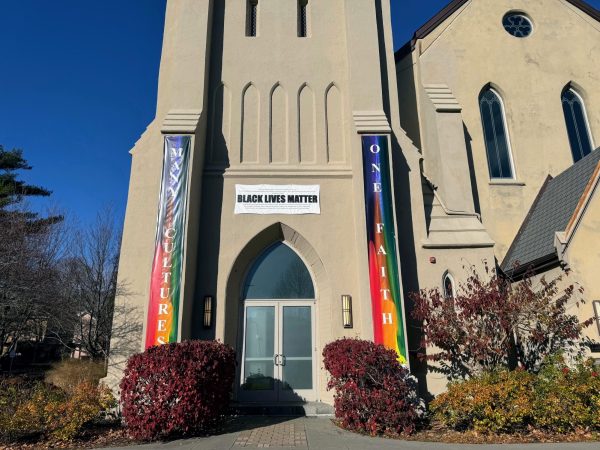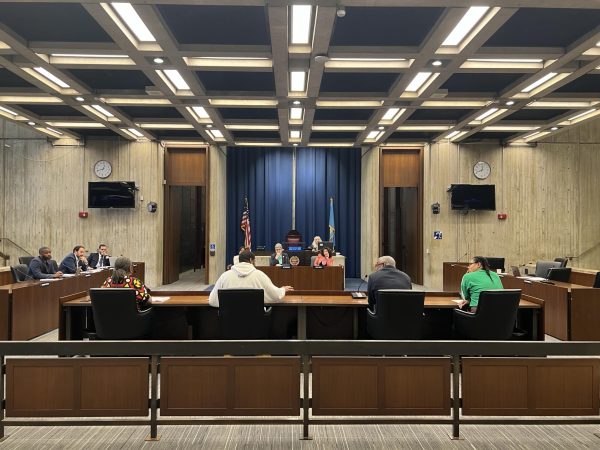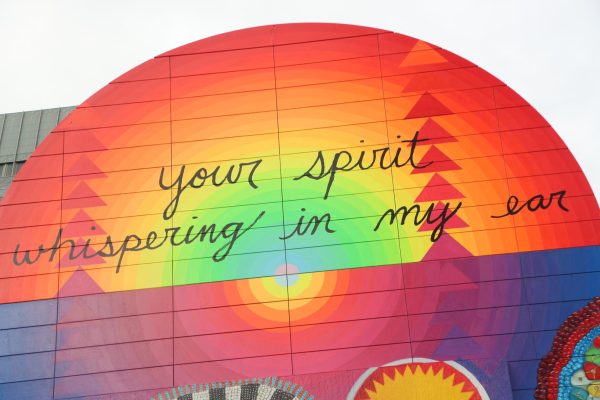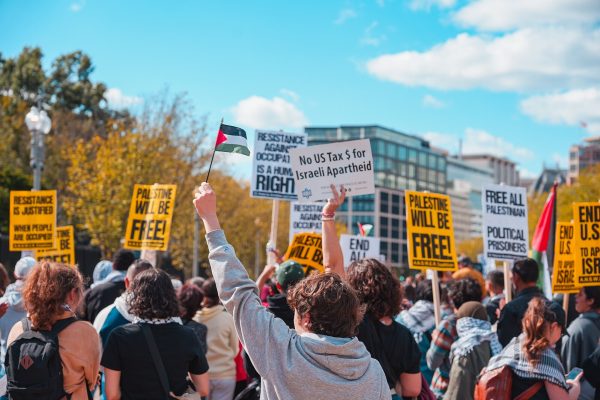‘Endless protesting doesn’t actually win victories,’ city activists say
Photo: Harshad Jadhav
Spokespeople from Social Feminists address concerns over abortion and LGBTQIA rights.
After the overturn of Roe v. Wade was announced on Friday, June 24, Gov. Charlie Baker signed an executive order to “further preserve” abortion rights in Massachusetts and protect “reproductive health care providers who serve out-of-state residents.”
According to a report by Guttmacher Institute, there was a 12% decline in the abortion rate in Massachusetts from 15.3 to 13.5 abortions per 1,000 women of reproductive age between 2014 and 2017. These rates might change since seven states have already applied abortion bans and some others are following. Abortions registered in Massachusetts were not only provided to state residents, some patients traveled from other states.
In Massachusetts, restrictions include parental consent for abortion-seeking minors younger than 16, and only abortion under 24 weeks is permitted unless the pregnancy endangers the mother, or if there is a lethal fetal anomaly.
This decision coincided with the third annual Trans Resistance March on Saturday, June 25. Speaking with interim President Julia Golden, there were three goals that day: “trans joy, reach funding goals, and build more trans leadership.”
However, addressing the court’s decision became the fourth goal as Golden gathered the protesters for a passionate speech before the march began. “I went to bed last night angry because I wanted to know, in what world does the government have any say in any of our bodies…I want to work today to take that anger I felt last night and use it as energy to march for my rights, for your rights, for our rights.” On the day of the decision, Trans Resistance gave their statement with a post on Instagram, “All restrictions on bodily autonomy are connected…we stand in absolute solidarity with those who seek abortions, those who have had abortions, those who are afraid, and those who resist.”
With the strong LGBTQIA+ community in Boston and Massachusetts continuing to keep abortion legal, the rhetoric people used to describe the state is that of a beacon for the rest of the country to follow. KB, Head of Communications at Trans Resistance, agrees. “I think it has to be. I do think that despite the many privileges and advantages that we fought for here in Massachusetts, there’s a lot of fear and anxiety and that’s true for people who need access to abortions. It’s true for trans people.”
Tre’andre Valentine, an executive at the Massachusetts Transgender Political Coalition and member of Trans Resistance, says that there is still more to do. “Massachusetts has set itself up to be a beacon but there is still work to be done.” Issues like gender-affirming care and knowledgeable providers were just some of the many Valentine brought up.
Trans Resistance started three years ago as a response to what the group perceived as Boston Pride’s failure to thoroughly represent the LGBTQIA leading to the nonprofit dissolving in 2021 and ending its 50-year run. However, a shift in who runs the protests or rallies isn’t going to do much in impacting the legislation in place.
“Protesting is an excellent first step for any movement. But endless protesting doesn’t actually win victories in a substantial way,” said Claire Grossi, member of Socialist Alternative. This political organization received almost 50 people to start an open conversation about immediate and long-term solutions regarding abortion bans.
“We are going to see an influx of people coming to states like Massachusetts to receive an abortion. And we don’t want those facilities to get overrun so that no one is able to access an abortion,” added Claire. She explained that they’re expecting mass organizations like Planned Parenthood, to mobilize hundreds of people and resources.
Among the attendees, an 18-year-old student raised her voice to explain the importance of staying informed. “So many times within our country, a discussion goes on for about a week after the decision is made, and then it dies because we go on to the news, we go on to the next thing,” Grace Sullivan said while holding a print copy of the SCOTUS leaked draft. “I had already assumed that it was coming out very soon due to the fact that the Supreme Court takes a vacation from July to September. So I was anticipating it with my friends.”
“You don’t have to necessarily be a woman or someone who has a uterus to be pissed off at what’s going on and to want to fight for change,” said Steve Downey, member of Boston Native Coalition Extinction Rebellion. His personal goal as an activist is “to unite as many groups across the country to build a mass movement, to build a united front.”
“We’ve seen protests and movements win reproductive freedom in Latin America,” said Liam Easton-Calabria, another member of Socialist Alternative. This association is willing to I think we have been successful in helping to organize people who are ready to fight. And those people are all across Boston. Those people are all across the country, all across the world, even.

